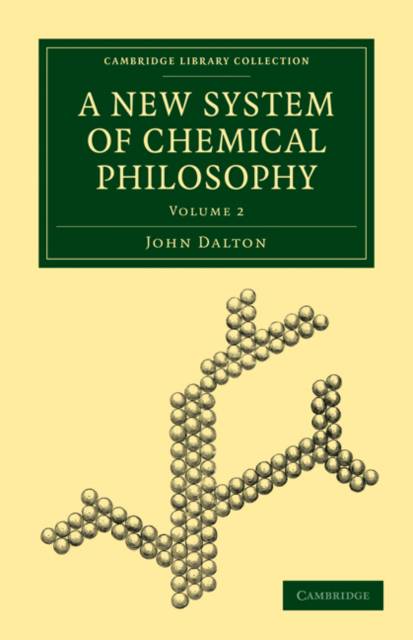
- Afhalen na 1 uur in een winkel met voorraad
- Gratis thuislevering in België vanaf € 30
- Ruim aanbod met 7 miljoen producten
- Afhalen na 1 uur in een winkel met voorraad
- Gratis thuislevering in België vanaf € 30
- Ruim aanbod met 7 miljoen producten
Zoeken
Omschrijving
The renowned English chemist and meteorologist John Dalton (1766-1844) published A New System of Chemical Philosophy in two volumes, between 1808 and 1827. Dalton's discovery of the importance of the relative weight and structure of particles of a compound for explaining chemical reactions transformed atomic theory and laid the basis for much of what is modern chemistry. Volume 2 was published in 1827. It contains sections examining the weights and structures of two-element compounds in five different groups: metallic oxides; earthly, alkaline and metallic sulphurets; earthly, alkaline and metallic phosphurets; carburet; and metallic alloys. An appendix contains a selection of brief notes and tables, including a new table of the relative weights of atoms. A planned second part was never published. Dalton's work is a monument of nineteenth-century chemistry. It will continue to be read and enjoyed by anybody interested in the history and development of science.
Specificaties
Betrokkenen
- Auteur(s):
- Uitgeverij:
Inhoud
- Aantal bladzijden:
- 376
- Taal:
- Engels
- Reeks:
Eigenschappen
- Productcode (EAN):
- 9781108019682
- Verschijningsdatum:
- 16/09/2010
- Uitvoering:
- Paperback
- Formaat:
- Trade paperback (VS)
- Afmetingen:
- 140 mm x 216 mm
- Gewicht:
- 476 g

Alleen bij Standaard Boekhandel
+ 170 punten op je klantenkaart van Standaard Boekhandel
Beoordelingen
We publiceren alleen reviews die voldoen aan de voorwaarden voor reviews. Bekijk onze voorwaarden voor reviews.








